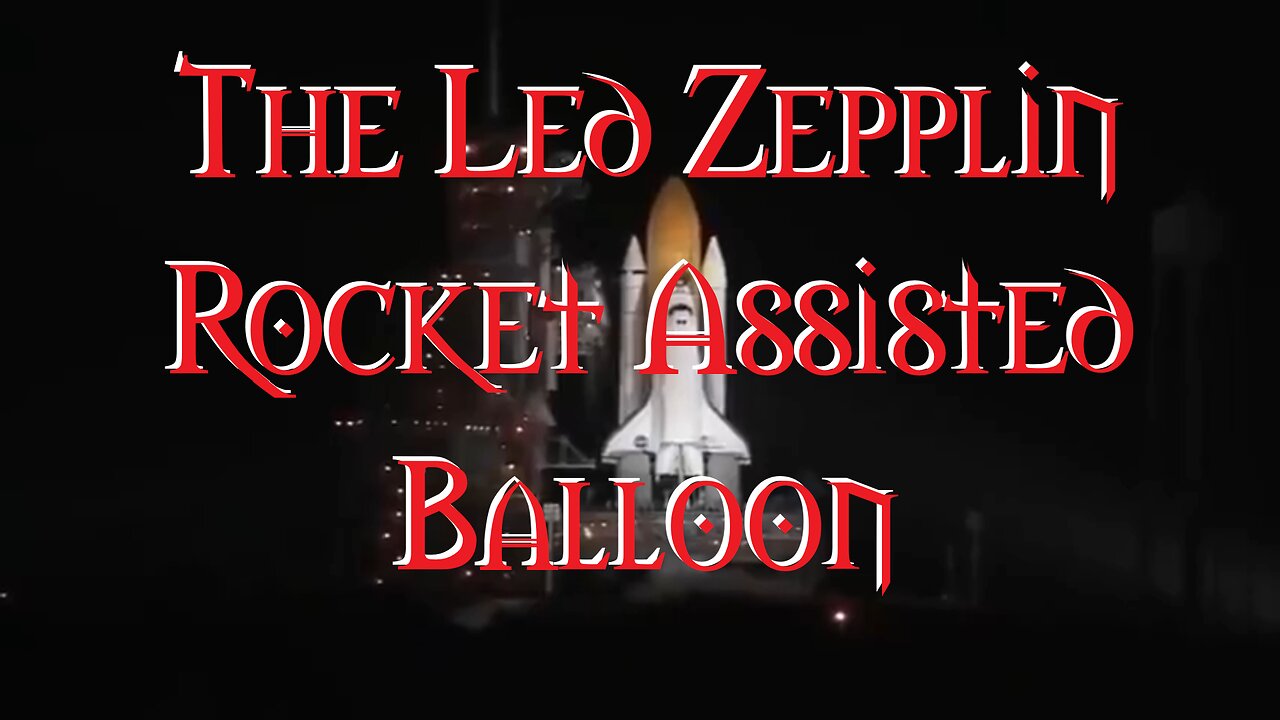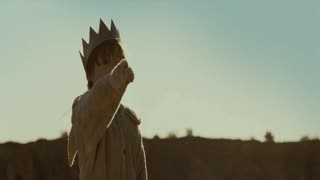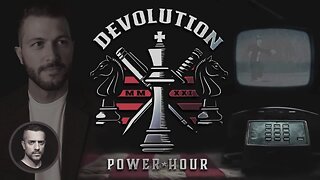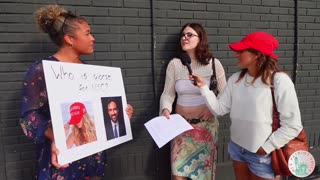Premium Only Content

Led Zeppelins are Rocket Assisted Balloons
"That's the Way" is a folk rock ballad by Led Zeppelin from their third album, Led Zeppelin III, released in 1970. As with several of the tracks on the album, it is an acoustic song.
Jimmy Page and Robert Plant wrote the piece in 1970 on a retreat at Bron-Yr-Aur cottage, Wales. Page noted that the two developed it and recorded a rough demo after a long walk before they returned to the cottage.
The original working title of the song was "The Boy Next Door". On the surface, the lyrics are about one boy's parents being against a friendship with another boy due to his long hair and coming from the wrong side of town. It also reflects on the group's early American tours, when they were sometimes harassed for their appearance.
Instrumentation for the song is spare, consisting of a strummed twelve-string acoustic guitar, with overdubbed mandolin and steel guitar fills; percussion and bass are absent from much of the song until the instrumental outro. According to Page, "And right at the end, where everything opens up, I played a dulcimer." He also plays the bass heard at the conclusion: "I was doing a bunch of overdubs and got excited. [Bassist] John Paul Jones went home, so I put the bass part on it as well! [laughs] That didn't happen often, believe me!"
"Tangerine" by the English band Led Zeppelin. Recorded in 1970, it is included on the second, more acoustic-oriented side of Led Zeppelin III (1970). The plaintive ballad reflects on lost love and features strummed acoustic guitar rhythm with pedal steel guitar.
The Yardbirds, with guitarist Jimmy Page, recorded an early version of the song in 1968, titled "Knowing That I'm Losing You". When it was released on the Page-produced 2017 album Yardbirds '68, Keith Relf's vocal was left out. "Tangerine" has been performed in concert by Led Zeppelin at different points in their career and has been recorded by other musicians.
"Tangerine" dates back to Page's time as lead guitarist with the Yardbirds. In April 1968, the group recorded demos for several songs at the Columbia Studios in New York City. Page biographer George Case notes that "Knowing That I'm Losing You" is very similar to "Tangerine" and suggests that Jackie DeShannon inspired the tune. Recordings from these sessions (with producer Manny Kellem) and the concert performance later used for Live Yardbirds: Featuring Jimmy Page were rejected for release at the time, but were issued in 2017 on the Yardbirds '68 compilation album produced by Page. While the demo recorded by the Yardbirds featured a vocal by Keith Relf, the 2017 release does not include it.
To develop material for a follow-up album to Led Zeppelin II, Page and singer Robert Plant took a working holiday at Bron-Yr-Aur, a rustic retreat in South Snowdonia, Wales. Plant in particular was inspired by the back-to-the-land trends in northern California and the British folk scene. Accompanied only by acoustic guitar, hand-claps, and harmonica, the pair created tunes that served as the basis for several songs on Led Zeppelin III and later albums. Although written earlier, "Tangerine" reflects this rural sensibility and journalist Nigel Williamson includes it with the acoustic material born of the Bron-yr-aur sojourn. Other earlier influences include songs recorded at Mickie Most's Donovan sessions, when John Paul Jones and Page were studio musicians.
"The Maid Freed from the Gallows" is one of many titles of a centuries-old folk song about a condemned maiden pleading for someone to buy her freedom from the executioner. In the collection of ballads compiled by Francis James Child in the late 19th century, it is indexed as Child Ballad number 95; 11 variants, some fragmentary, are indexed as 95A to 95K. The Roud Folk Song Index identifies it as number 144.
The ballad exists in a number of folkloric variants, from many different countries, and has been remade in a variety of formats. For example, it was recorded in 1939 as "The Gallis Pole" by folk singer Huddie "Lead Belly" Ledbetter, and in 1970 as "Gallows Pole", an arrangement of the Fred Gerlach version, by English rock band Led Zeppelin, on the album Led Zeppelin III.
There are many versions, all of which recount a similar story. A maiden (a young unmarried woman) or man is about to be hanged (in many variants, for unknown reasons) pleads with the hangman, or judge, to wait for the arrival of someone who may bribe him. Typically, the first person (or people) to arrive, who may include the condemned person's parent or sibling, has brought nothing and often has come to see them hanged. The last person to arrive, often their true love, has brought the gold, silver, or some other valuable to save them. Although the traditional versions do not resolve the fate of the condemned one way or the other, it may be presumed that the bribe would succeed. Depending on the version, the condemned may curse all those who failed them.
-
 13:46
13:46
Psychological operations
16 days agoDreams Of Flying Hungry No More Shady Grove Mudcrutch
26 -
 2:10:12
2:10:12
Badlands Media
22 hours agoDevolution Power Hour Ep. 383
62.7K37 -
 2:40:10
2:40:10
DLDAfterDark
5 hours ago $0.11 earnedDLD Live! Feat. Red Dawn Readiness! Glock FRT's - Striker Fire Safety Concerns - ACE Trigger
11.4K1 -
 2:40:21
2:40:21
BlackDiamondGunsandGear
4 hours agoAre ALL Striker Fired Pistols UNSAFE? // After Hours Armory
27K4 -
 6:34:50
6:34:50
SpartakusLIVE
8 hours ago#1 Saturday Spartoons on RUMBLE PREMIUM
102K6 -
 1:04:59
1:04:59
Man in America
9 hours ago“Summoning the Demon” — The AI Agenda Is FAR WORSE Than We Know w/ Kay Rubacek
34.7K21 -
 2:16:48
2:16:48
Tundra Tactical
7 hours ago $0.07 earned🎯💥 The World’s Okayest Gun Show 🔫😂 | LIVE Tonight on Rumble!
20.2K -
 3:36:03
3:36:03
Mally_Mouse
1 day ago🌶️ 🥵Spicy BITE Saturday!! 🥵🌶️- Let's Play: Tower Unite!
43.6K2 -
 58:59
58:59
MattMorseTV
7 hours ago $1.27 earned🔴Trump just BROKE Newsom.🔴
59.9K69 -
 18:14
18:14
Her Patriot Voice
7 hours agoWho Is WORSE for NYC: Trump Girl or Socialist?
39.6K31